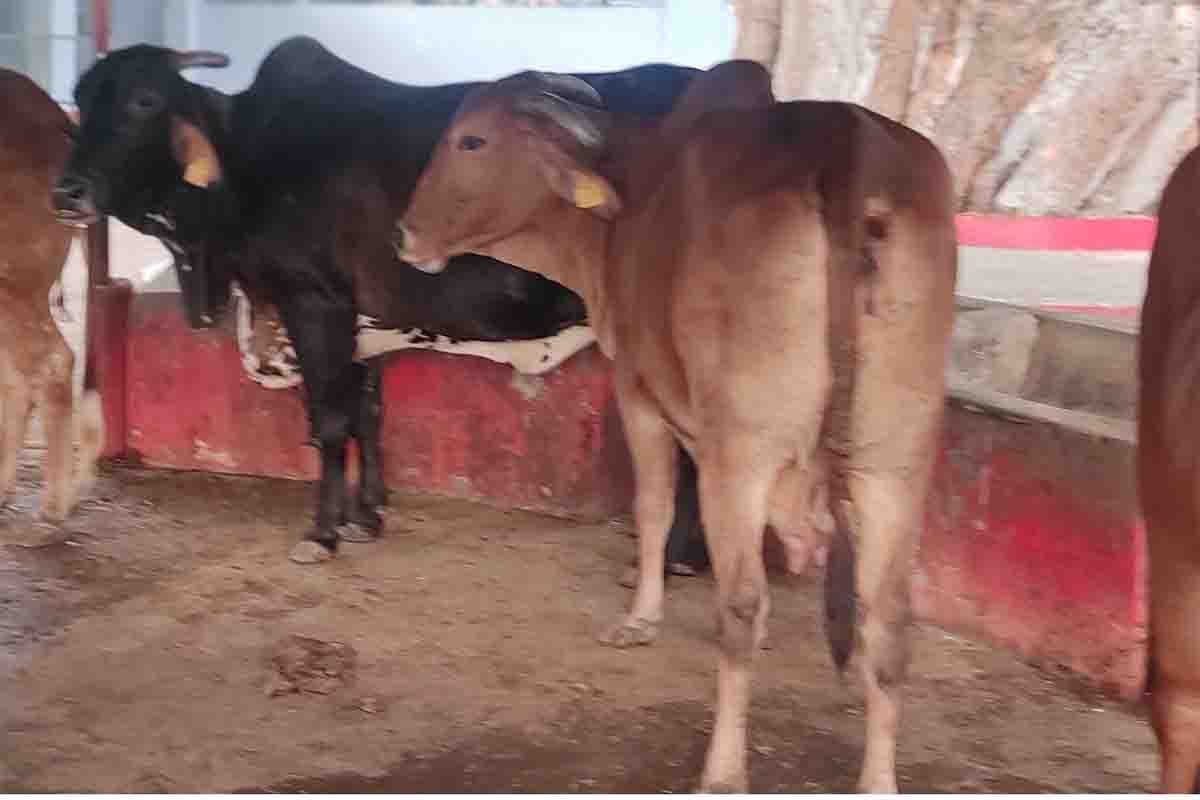Understanding Organic Livestock Farming
Organic livestock farming is a holistic agricultural approach that emphasizes sustainable practices aimed at fostering animal welfare, ecological balance, and the health of the consumer. Unlike conventional livestock farming, which often relies on synthetic inputs such as hormones and antibiotics, organic farming operates under specific regulations and guidelines that prioritize natural methods. The key principles that define organic livestock farming revolve around the use of organic feed, the enhancement of animal living conditions, and the commitment to avoid harmful chemical substances.At the heart of organic livestock farming is the principle of providing animals with organic feed that is free from genetically modified organisms (GMOs), synthetic pesticides, and fertilizers. This practice not only promotes the health of the livestock but also ensures that the food products derived from them are safe and nutritious for consumers. Additionally, organic farmers are mandated to implement strategies that enhance the wellbeing of the animals, which includes providing adequate space, access to pasture, and opportunities to engage in natural behaviors.
Consumer awareness and demand for organic products have surged in recent years, driven by a growing concern for health and environmental sustainability. As consumers become more informed about the benefits of organic livestock farming, they seek certified organic products that exemplify high standards. When purchasing organic livestock products, consumers should look for certification labels that verify the adherence to organic farming practices, ensuring that the products they buy align with their values and health concerns.
Ultimately, organic livestock farming reflects a conscious effort to create a healthier food system by prioritizing sustainable practices and animal welfare. By choosing organic, consumers not only support ecological integrity but also contribute to a system that respects the welfare of livestock.
Environmental and Health Benefits
Organic livestock farming offers a multitude of environmental and health benefits that distinguish it from conventional farming practices. One of the most significant contributions of organic farming is its positive impact on biodiversity. By utilizing holistic management techniques and avoiding synthetic chemicals, organic farms foster a more diverse ecosystem. This enhances the habitat for various species, encouraging the presence of beneficial insects, birds, and other wildlife. The integration of diverse crop rotations and companion planting further supports this ecosystem, leading to a more balanced agricultural environment.
Furthermore, organic practices improve soil health significantly. Through techniques such as cover cropping, composting, and reduced tillage, organic livestock farming enhances soil structure and fertility. These practices not only retain moisture but also promote the proliferation of beneficial microorganisms, which are crucial for nutrient cycling. Healthy soil leads to better crop yields and a more resilient farming system, capable of withstanding environmental stresses such as drought or flooding.
Another important environmental advantage is the reduction of pollution associated with chemical fertilizers and pesticides that are frequently used in conventional farming. Organic livestock operations depend on natural fertilizers and pest management strategies, which minimizes the leaching of harmful substances into nearby water bodies, thereby protecting aquatic ecosystems and enhancing water quality. This commitment to sustainability contributes considerably to reducing the farm’s overall carbon footprint.
From a health perspective, consuming organic livestock products offers numerous advantages. Organic meat and dairy tend to have lower levels of harmful chemicals, such as pesticides and antibiotics, potentially leading to healthier dietary options. Moreover, organic livestock are raised in a more natural environment, often with greater access to pasture, which can translate into more nutritious food. Research indicates that organic products may contain higher levels of beneficial nutrients, such as omega-3 fatty acids, contributing to healthier eating habits for consumers.
Challenges and Considerations
Organic livestock farming, while beneficial, presents several challenges that farmers must navigate. One of the primary obstacles is the significantly higher costs associated with organic feed compared to conventional options. Organic feed arises from farming practices that avoid synthetic chemicals, resulting in a premium price that can strain the financial viability of organic livestock operations.
Furthermore, the process of obtaining organic certification can be intricate and lengthy, requiring compliance with rigorous standards laid out by certifying bodies. This certification ensures that livestock farming adheres to organic principles, but the paperwork and inspections necessitate considerable time and investment. For many farmers, particularly those just starting, this hurdle may seem daunting and discourage them from pursuing organic methods.
Market access is another critical issue confronting organic livestock farmers. Although consumer demand for organic products is on the rise, many traditional marketplaces may not yet recognize or provide space for organically raised livestock. Farmers often have to seek out niche markets or establish direct sales through farmers’ markets and community-supported agriculture (CSA) programs, which can demand additional marketing efforts and logistical planning.
Managing diseases in an organic setting also presents a unique challenge. Organic livestock farmers must rely on holistic management practices and natural remedies rather than synthetic medications. This shift requires an in-depth understanding of animal health, as well as implementing stringent biosecurity measures to prevent disease outbreaks.
For those aspiring to enter organic livestock farming, several considerations are crucial. Selecting breeds that flourish in organic environments is paramount, as different animals have varying susceptibilities and feeds. Additionally, understanding organic regulations thoroughly can prevent pitfalls down the line. Lastly, adopting sustainable farm management practices is essential, ensuring that farming remains productive while preserving resources for future generations. These challenges, though significant, can be addressed with careful planning and commitment, ultimately contributing to a sustainable agricultural future.
Future Trends in Organic Livestock Farming
As the organic livestock farming sector evolves, it is increasingly influenced by various emerging trends and innovations that promise to enhance sustainability and productivity. One significant trend shaping the future of this industry is the integration of new technologies. Precision farming, which utilizes data analytics and IoT devices, allows farmers to monitor livestock health, improve feed efficiency, and optimize resource use. This technological adoption not only boosts productivity but also supports animal welfare, a fundamental principle of organic farming.
Another noteworthy development is the rise of regenerative agriculture practices. This approach emphasizes the restoration of soil health, biodiversity, and ecosystem balance. Regenerative methods can enhance the resilience of livestock systems, enabling farmers to mitigate the impacts of climate change while maintaining high organic standards. Such practices are increasingly recognized as essential for sustaining long-term food production and environmental health, making them a critical aspect of future organic livestock operations.
Consumer preferences are also shifting toward sustainability, steering demand for organic products. As awareness of environmental issues grows, consumers are more inclined to support practices that prioritize animal welfare and ecological balance. This shift is prompting producers to align their practices with the growing market for organic livestock, which can help secure their position in a competitive landscape. Additionally, government policies supporting organic sector expansion and sustainability initiatives are likely to foster the growth of organic livestock farming.
Looking ahead, organic livestock farming has the potential to play a vital role in addressing global food security challenges. By adopting innovative technologies, implementing regenerative practices, and responding to consumer demands, the sector can enhance its contribution to a sustainable food system. The future of organic livestock farming is promising, characterized by advancements that align economic viability with ecological integrity.

